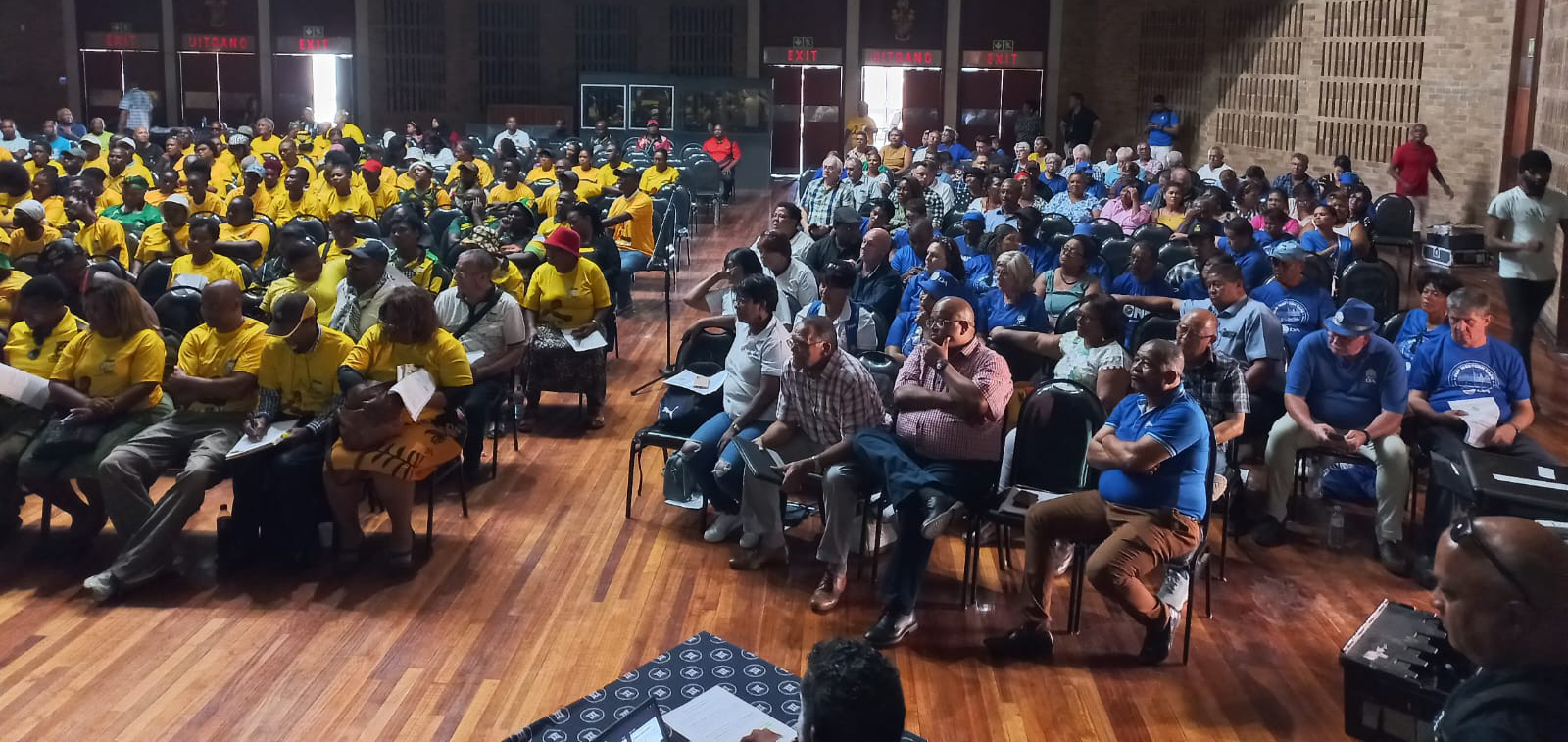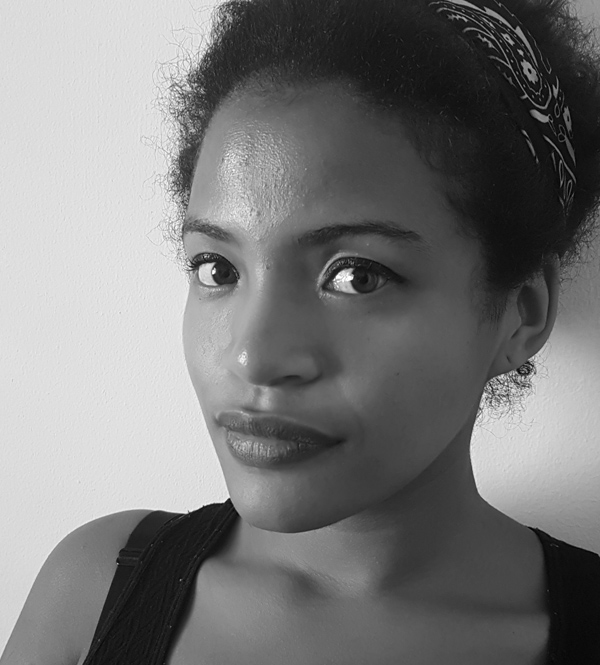All Article Properties:
{
"access_control": false,
"status": "publish",
"objectType": "Article",
"id": "2032645",
"signature": "Article:2032645",
"url": "https://staging.dailymaverick.co.za/article/2024-01-30-anc-accused-of-disrupting-public-hearings-on-western-cape-provincial-powers-bill/",
"shorturl": "https://staging.dailymaverick.co.za/article/2032645",
"slug": "anc-accused-of-disrupting-public-hearings-on-western-cape-provincial-powers-bill",
"contentType": {
"id": "1",
"name": "Article",
"slug": "article"
},
"views": 0,
"comments": 7,
"preview_limit": null,
"excludedFromGoogleSearchEngine": 0,
"title": "ANC accused of disrupting public hearings on Western Cape Provincial Powers Bill",
"firstPublished": "2024-01-30 21:43:02",
"lastUpdate": "2024-01-30 21:43:02",
"categories": [
{
"id": "22",
"name": "Politics",
"signature": "Category:22",
"slug": "politics",
"typeId": {
"typeId": "1",
"name": "Daily Maverick",
"slug": "",
"includeInIssue": "0",
"shortened_domain": "",
"stylesheetClass": "",
"domain": "staging.dailymaverick.co.za",
"articleUrlPrefix": "",
"access_groups": "[]",
"locale": "",
"preview_limit": null
},
"parentId": null,
"parent": [],
"image": "",
"cover": "",
"logo": "",
"paid": "0",
"objectType": "Category",
"url": "https://staging.dailymaverick.co.za/category/politics/",
"cssCode": "",
"template": "default",
"tagline": "",
"link_param": null,
"description": "",
"metaDescription": "",
"order": "0",
"pageId": null,
"articlesCount": null,
"allowComments": "1",
"accessType": "freecount",
"status": "1",
"children": [],
"cached": true
},
{
"id": "29",
"name": "South Africa",
"signature": "Category:29",
"slug": "south-africa",
"typeId": {
"typeId": "1",
"name": "Daily Maverick",
"slug": "",
"includeInIssue": "0",
"shortened_domain": "",
"stylesheetClass": "",
"domain": "staging.dailymaverick.co.za",
"articleUrlPrefix": "",
"access_groups": "[]",
"locale": "",
"preview_limit": null
},
"parentId": null,
"parent": [],
"image": "",
"cover": "",
"logo": "",
"paid": "0",
"objectType": "Category",
"url": "https://staging.dailymaverick.co.za/category/south-africa/",
"cssCode": "",
"template": "default",
"tagline": "",
"link_param": null,
"description": "Daily Maverick is an independent online news publication and weekly print newspaper in South Africa.\r\n\r\nIt is known for breaking some of the defining stories of South Africa in the past decade, including the Marikana Massacre, in which the South African Police Service killed 34 miners in August 2012.\r\n\r\nIt also investigated the Gupta Leaks, which won the 2019 Global Shining Light Award.\r\n\r\nThat investigation was credited with exposing the Indian-born Gupta family and former President Jacob Zuma for their role in the systemic political corruption referred to as state capture.\r\n\r\nIn 2018, co-founder and editor-in-chief Branislav ‘Branko’ Brkic was awarded the country’s prestigious Nat Nakasa Award, recognised for initiating the investigative collaboration after receiving the hard drive that included the email tranche.\r\n\r\nIn 2021, co-founder and CEO Styli Charalambous also received the award.\r\n\r\nDaily Maverick covers the latest political and news developments in South Africa with breaking news updates, analysis, opinions and more.",
"metaDescription": "",
"order": "0",
"pageId": null,
"articlesCount": null,
"allowComments": "1",
"accessType": "freecount",
"status": "1",
"children": [],
"cached": true
},
{
"id": "387188",
"name": "Maverick News",
"signature": "Category:387188",
"slug": "maverick-news",
"typeId": {
"typeId": "1",
"name": "Daily Maverick",
"slug": "",
"includeInIssue": "0",
"shortened_domain": "",
"stylesheetClass": "",
"domain": "staging.dailymaverick.co.za",
"articleUrlPrefix": "",
"access_groups": "[]",
"locale": "",
"preview_limit": null
},
"parentId": null,
"parent": [],
"image": "",
"cover": "",
"logo": "",
"paid": "0",
"objectType": "Category",
"url": "https://staging.dailymaverick.co.za/category/maverick-news/",
"cssCode": "",
"template": "default",
"tagline": "",
"link_param": null,
"description": "",
"metaDescription": "",
"order": "0",
"pageId": null,
"articlesCount": null,
"allowComments": "1",
"accessType": "freecount",
"status": "1",
"children": [],
"cached": true
}
],
"content_length": 6767,
"contents": "One day into public hearings for the Western Cape Legislature’s Western Cape Provincial Powers Bill, the hearings have turned into a back-and-forth between the Democratic Alliance (DA) and the African National Congress (ANC) over disruptions.\r\n\r\nThe bill seeks to assign or delegate further powers to the province, but opposition parties have labelled it “an embarrassing document purporting to be serious legislation” and “an attempt to undermine the constitutional principles of building a united, non-sexist, non-racial, democratic and prosperous society”.\r\n<h4><strong>Delegation of powers</strong></h4>\r\nThe <a href=\"https://www.wcpp.gov.za/sites/default/files/WC-Bill5-2023-GJ_WC-Bill05-2023-GJ.pdf\">bill was tabled</a> in the legislature in mid-2023 by DA member Christopher Fry. It aims to “identify and remedy the failures of the national government through the assertion of the Western Cape’s provincial powers and the powers of local authorities located in the Western Cape”.\r\n\r\nIf enacted into law, it would “actively seek the assignment or delegation of further powers to the Western Cape in all areas of provincial and local autonomy”.\r\n\r\nThe province intends to assert its existing provincial and local powers to seek the delegation or assignment of powers in the following areas:\r\n<ul>\r\n \t<li>Policing, including but not limited to the powers identified in Schedule 4A of the Constitution;</li>\r\n \t<li>Public transport, including municipal public transport;</li>\r\n \t<li>Energy, including electricity generation, transmission and reticulation;</li>\r\n \t<li>Trade, including international trade;</li>\r\n \t<li>Harbours, including national harbours.</li>\r\n</ul>\r\nExplaining the bill, Fry said it was motivated by “a recognition that, both inside and outside of the Western Cape’s constitutional competence, the National Government is unable or unwilling to act in the best interests of the residents of the Western Cape”.\r\n\r\n<strong>Read more in Daily Maverick: </strong><a href=\"https://www.dailymaverick.co.za/article/2023-07-26-unlike-secession-devolution-of-some-powers-to-western-cape-is-constitutionally-possible/\">Unlike secession, devolution of some powers to Western Cape is constitutionally possible</a>\r\n\r\nIf passed, Fry said at the time, the bill would play “an important role” in ensuring that the province asserted existing power or sought additional powers in the above areas.\r\n\r\n“The DA remains committed to the devolution of national powers to capable provinces in order to bring quality service delivery and good governance to communities,” Fry said.\r\n\r\nIn 2019, one of the DA’s main campaign priorities was the devolution of <a href=\"https://cdn.da.org.za/wp-content/uploads/2019/02/22160849/A4-Manifesto-Booklet-Digital.pdf%5C\">policing and rail powers</a> to the provinces.\r\n\r\nThis has been a sticking point between the party and members of the national government, leading to public spats between <a href=\"https://www.dailymaverick.co.za/article/2022-06-14-justice-minister-and-good-party-firm-that-cape-town-cop-unit-a-rogue-operation/\">DA Cape Town metro chair JP Smith and Police Minister Bheki Cele</a>.\r\n<h4><strong>Calls for legal opinion</strong></h4>\r\nThe bill was deliberated formally on 9 June. By 20 July, the provincial legislature voted to establish an ad hoc committee on the Western Cape Provincial Powers Bill. This committee consists of 10 members, the majority from the DA which controls the legislature.\r\n\r\nPublic comment on the bill closed on 7 August 2023.\r\n\r\nDuring a <a href=\"https://pmg.org.za/committee-meeting/37346/\">meeting of the ad hoc committee on 16 August</a>, provincial legislature legal adviser advocate Romeo Maasdorp was reported by the Parliamentary Monitoring Group (PMG) as saying that, in his observation of previous bills tabled in the legislature, this was the first bill that was based on “spurious generalisations” without backing in terms of the bill.\r\n\r\nPMG said Maasdorp deemed the premise of the bill to be “founded on politically loaded statements” as well as being unfounded and unresearched”. He also proposed to further engage the committee after a public participation process and cautioned that his observations were preliminary.\r\n\r\nIn the same meeting, it was decided to seek legal opinion on the bill.\r\n\r\nAt another committee meeting on 24 November to discuss the way forward, the PMG reported that the <a href=\"https://pmg.org.za/committee-meeting/38087/\">ANC’s Patrick Marran objected to a public hearing process</a> before having the bill’s legality issues resolved.\r\n\r\nMarran said going into a public hearing process would be a waste of expenditure before seeking a legal opinion. This was seconded by Peter Marais from the Freedom Front Plus.\r\n<h4><strong>Majority vote in favour</strong></h4>\r\nHowever, when the matter came to a vote, the DA members of the committee voted in favour of the public participation process while the ANC members and Marais voted against the proposal. With the majority vote secured, the public participation process was planned.\r\n\r\nPublic hearings have been taking place since 29 January and conclude on 2 February.\r\n\r\nAhead of the hearings, the ANC said it would mobilise its alliance partners, the South African Communist Party, Cosatu and the South African National Civic Organisation to deploy members to the hearings to voice their opposition to the bill.\r\n\r\nIn a statement ahead of the hearings, the alliance labelled the bill as “nothing but an attempt to undermine the constitutional principles of building a united, non-sexist, non-racial, democratic and prosperous society”.\r\n\r\nJoining opposition to the bill is the Good party, whose legislature member Peter de Villiers <a href=\"https://forgood.org.za/das-western-cape-provincial-powers-bill-is-a-political-manifesto-masquerading-as-legislation/\">described</a> the bill as “an embarrassing document purporting to be serious legislation… The bill is a government-sponsored manifesto for the DA and is unashamedly unconstitutional”.\r\n\r\n<strong>Read more in Daily Maverick:</strong><a href=\"https://www.dailymaverick.co.za/article/2023-07-05-da-pushes-for-devolution-in-western-cape-before-next-years-poll/\"> DA pushes for devolution in Western Cape before next year’s poll</a>\r\n<h4><strong>Worcester hearing – claims and counterclaims</strong></h4>\r\nWhen the first public hearing took place on 29 January in Worcester, the DA’s Isaac Sileku, chairperson of the committee, said while there was robust dialogue in favour of and against the bill, “a substantial number of ANC supporters sought to disrupt the proceedings.\r\n\r\n“This included harassment of speakers who were voicing their support of the bill, intimidation and violent behaviour towards members of the committee, and threats of politically motivated violence.”\r\n\r\nSileku said the disruptions meant the hearing had to be adjourned a few minutes ahead of schedule.\r\n\r\nIn response, the ANC’s Pat Marran told <em>Daily Maverick:</em> “The ANC rejects allegations that members have disrupted the public hearing… Yes, it is true that the ANC has mobilised its members to attend, but [only] to oppose the bill.”\r\n\r\nHe said video footage and images would show ANC members and supporters peacefully making submissions to reject the bill.\r\n\r\n“Participants clearly raised their dissatisfaction with timekeeper, member Fry, who is not part of the ad hoc committee but tasked with the timekeeping for speakers,” he added.\r\n\r\n“Video footage of ANC supporters making submissions is clearly visible. What causes a bit of chaos at the end is when member Gillion Bosman grabbed the mic and adjourned the meeting, to the amazement [of] the meeting’s chairperson,” said Marran.\r\n\r\nThe public hearings will continue for the rest of the week, ending in the provincial legislature chambers in Cape Town on Friday, 2 February. <strong>D</strong><strong>M</strong>",
"teaser": "ANC accused of disrupting public hearings on Western Cape Provincial Powers Bill",
"externalUrl": "",
"sponsor": null,
"authors": [
{
"id": "1642",
"name": "Suné Payne",
"image": "https://www.dailymaverick.co.za/wp-content/uploads/Sune-Payne-Opinionista.jpg",
"url": "https://staging.dailymaverick.co.za/author/sune-payne/",
"editorialName": "sune-payne",
"department": "",
"name_latin": ""
}
],
"description": "",
"keywords": [
{
"type": "Keyword",
"data": {
"keywordId": "2747",
"name": "Politics",
"url": "https://staging.dailymaverick.co.za/keyword/politics/",
"slug": "politics",
"description": "",
"articlesCount": 0,
"replacedWith": null,
"display_name": "Politics",
"translations": null
}
},
{
"type": "Keyword",
"data": {
"keywordId": "4566",
"name": "Western Cape",
"url": "https://staging.dailymaverick.co.za/keyword/western-cape/",
"slug": "western-cape",
"description": "",
"articlesCount": 0,
"replacedWith": null,
"display_name": "Western Cape",
"translations": null
}
},
{
"type": "Keyword",
"data": {
"keywordId": "9264",
"name": "DA",
"url": "https://staging.dailymaverick.co.za/keyword/da/",
"slug": "da",
"description": "",
"articlesCount": 0,
"replacedWith": null,
"display_name": "DA",
"translations": null
}
},
{
"type": "Keyword",
"data": {
"keywordId": "11087",
"name": "ANC",
"url": "https://staging.dailymaverick.co.za/keyword/anc/",
"slug": "anc",
"description": "",
"articlesCount": 0,
"replacedWith": null,
"display_name": "ANC",
"translations": null
}
},
{
"type": "Keyword",
"data": {
"keywordId": "50817",
"name": "Public participation",
"url": "https://staging.dailymaverick.co.za/keyword/public-participation/",
"slug": "public-participation",
"description": "",
"articlesCount": 0,
"replacedWith": null,
"display_name": "Public participation",
"translations": null
}
},
{
"type": "Keyword",
"data": {
"keywordId": "384560",
"name": "Suné Payne",
"url": "https://staging.dailymaverick.co.za/keyword/sune-payne/",
"slug": "sune-payne",
"description": "",
"articlesCount": 0,
"replacedWith": null,
"display_name": "Suné Payne",
"translations": null
}
},
{
"type": "Keyword",
"data": {
"keywordId": "414437",
"name": "Western Cape Provincial Powers Bill",
"url": "https://staging.dailymaverick.co.za/keyword/western-cape-provincial-powers-bill/",
"slug": "western-cape-provincial-powers-bill",
"description": "",
"articlesCount": 0,
"replacedWith": null,
"display_name": "Western Cape Provincial Powers Bill",
"translations": null
}
}
],
"short_summary": null,
"source": null,
"related": [],
"options": [],
"attachments": [
{
"id": "52210",
"name": "",
"description": "",
"focal": "50% 50%",
"width": 0,
"height": 0,
"url": "https://dmcdn.whitebeard.net/dailymaverick/wp-content/uploads/2024/01/sune-explainer-powers-wcape.jpg",
"transforms": [
{
"x": "200",
"y": "100",
"url": "https://dmcdn.whitebeard.net/i/d2xoz5CU2XRzOmygta-5TMXuo0Y=/200x100/smart/filters:strip_exif()/file/dailymaverick/wp-content/uploads/2024/01/sune-explainer-powers-wcape.jpg"
},
{
"x": "450",
"y": "0",
"url": "https://dmcdn.whitebeard.net/i/XPJ4CkaqpSXtxe-k9BnqHHo3tBk=/450x0/smart/file/dailymaverick/wp-content/uploads/2024/01/sune-explainer-powers-wcape.jpg"
},
{
"x": "800",
"y": "0",
"url": "https://dmcdn.whitebeard.net/i/PjnBxUHRjKALAnHCqeArMiyBpNc=/800x0/smart/filters:strip_exif()/file/dailymaverick/wp-content/uploads/2024/01/sune-explainer-powers-wcape.jpg"
},
{
"x": "1200",
"y": "0",
"url": "https://dmcdn.whitebeard.net/i/2C3xAzdX6_youV31TR1eGui-_z4=/1200x0/smart/filters:strip_exif()/file/dailymaverick/wp-content/uploads/2024/01/sune-explainer-powers-wcape.jpg"
},
{
"x": "1600",
"y": "0",
"url": "https://dmcdn.whitebeard.net/i/VqI7-9bqHjKwyQCGVKy3pC3fEcw=/1600x0/smart/filters:strip_exif()/file/dailymaverick/wp-content/uploads/2024/01/sune-explainer-powers-wcape.jpg"
}
],
"url_thumbnail": "https://dmcdn.whitebeard.net/i/d2xoz5CU2XRzOmygta-5TMXuo0Y=/200x100/smart/filters:strip_exif()/file/dailymaverick/wp-content/uploads/2024/01/sune-explainer-powers-wcape.jpg",
"url_medium": "https://dmcdn.whitebeard.net/i/XPJ4CkaqpSXtxe-k9BnqHHo3tBk=/450x0/smart/file/dailymaverick/wp-content/uploads/2024/01/sune-explainer-powers-wcape.jpg",
"url_large": "https://dmcdn.whitebeard.net/i/PjnBxUHRjKALAnHCqeArMiyBpNc=/800x0/smart/filters:strip_exif()/file/dailymaverick/wp-content/uploads/2024/01/sune-explainer-powers-wcape.jpg",
"url_xl": "https://dmcdn.whitebeard.net/i/2C3xAzdX6_youV31TR1eGui-_z4=/1200x0/smart/filters:strip_exif()/file/dailymaverick/wp-content/uploads/2024/01/sune-explainer-powers-wcape.jpg",
"url_xxl": "https://dmcdn.whitebeard.net/i/VqI7-9bqHjKwyQCGVKy3pC3fEcw=/1600x0/smart/filters:strip_exif()/file/dailymaverick/wp-content/uploads/2024/01/sune-explainer-powers-wcape.jpg",
"type": "image"
}
],
"summary": "The Western Cape Legislature’s hearings on the new Western Cape Provincial Powers Bill have been marked by accusations of ANC disruptions and counter-claims of DA bias. Much of it has to do with politicking ahead of this year’s elections.",
"template_type": null,
"dm_custom_section_label": null,
"elements": [],
"seo": {
"search_title": "ANC accused of disrupting public hearings on Western Cape Provincial Powers Bill",
"search_description": "One day into public hearings for the Western Cape Legislature’s Western Cape Provincial Powers Bill, the hearings have turned into a back-and-forth between the Democratic Alliance (DA) and the African",
"social_title": "ANC accused of disrupting public hearings on Western Cape Provincial Powers Bill",
"social_description": "One day into public hearings for the Western Cape Legislature’s Western Cape Provincial Powers Bill, the hearings have turned into a back-and-forth between the Democratic Alliance (DA) and the African",
"social_image": ""
},
"cached": true,
"access_allowed": true
} 




